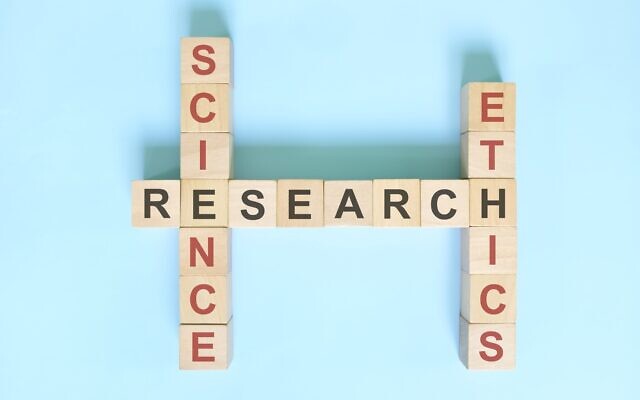‘The risks can easily outweigh the benefits’
'After having been involved in this area of work for 18 months now, I can attest firsthand to the enormous contribution researchers make to society.'
In 2021, I was privileged to become the first rabbi appointed to the Human Research Ethics Committee at the Royal Children’s Hospital in Melbourne. Earlier this year, I was again privileged to join the Human Research Ethics Committee at Deakin University, also as its first rabbinic member.
When I started in these roles, human research and the roles of ethics committees were new to me. But after having been involved in this area of work for 18 months now, I can attest firsthand to the enormous contribution researchers make to society.
Indeed, human research is a fascinating science which has brought tremendous benefit to humanity over recent decades. It has enabled doctors and scientists to increase overall life expectancy, and to reduce pain and suffering among people experiencing severe illness. Through the never-ending expansion of humanity’s scientific horizons and the embrace of new and improved medical technologies, we can ease the burden of many suffering from disease and genetic conditions. This helps not only the patients themselves, but also their families, carers and social networks.
But, like many advancements in the 21st century, human research has its risks. If unmanaged, the risks associated with research and experimentation on human beings can easily outweigh the benefits. This is especially true if those carrying out such research lack a moral compass and may seek to advance their own personal agendas for money, fame or for purely sadistic reasons.
Notorious examples of the disgraceful treatment of humans in the name of “research” include the infamous Tuskegee syphilis study conducted by the United States government on African American men between 1932 and 1972. In this study, 399 men who were diagnosed with syphilis were not offered penicillin even after it became widely available, so that researchers could continue a longitudinal study into these men’s disease. Provision of penicillin could have saved the lives of many of these participants. The men were also not even informed of their syphilis diagnosis. After this injustice became public, US president Bill Clinton issued a public apology on behalf of all American people and vowed that such injustices should never occur again.
In terms of the Jewish community, we don’t need to look past World War II and the shocking mistreatment of Jews and other victims of Nazi brutality, to understand the evil abyss to which humanity can descend in the name of so-called “research”. Joseph Mengele perpetrated inhumane tests on innocent people during the Holocaust, earning him the notorious nickname “the Angel of Death”. Indeed, it was shortly after World War II that many countries began legislating ethical checks and balances for human research.
In Australia, it is against the law to conduct a research project involving humans until approval is sought from and obtained by a registered Human Research Ethics Committee (HREC). HRECs must be comprised of medical professionals, qualified researchers, legal practitioners, lay people and pastoral carers. My appointments to both the Children’s Hospital and Deakin University HREC’s were within the pastoral carer division as part of a broad and diverse cross-section of community members, each of whom brings their perspective to the review of each application.
Our role is to review all research applications to ensure that they possess merit and benefit to society, and to ensure that risks are mitigated to the extent possible. Researchers must always make sure that human participants are respected (including their privacy and their giving of full consent to be a participant in a research project), and that the process adopted throughout each project has integrity and are just. These values and criteria are explained in the government’s National Statement on Ethical Conduct in Human Research, and failure to adhere to all these values will automatically result in the rejection of a research project.
On a personal note, the values and moral ideals espoused in the Torah have guided me enormously in my approach to reviewing human research projects. So much of Judaism is centred around the core belief that all humans are created in God’s image and deserve to be treated with respect. “Don’t do to others what you would not want them to do to you” is of course the golden rule which underscores the interpersonal obligations of many faiths, its origins stemming from Judaism.
Since becoming involved in reviewing human research projects and having done so now for the past 18 months, I can honestly say how much I’ve enjoyed working alongside my fellow committee members, particularly those from other faith communities within the pastoral care division, and I look forward to continuing to contribute to this important area of work. Representing the Jewish community in these roles is an honour and a privilege, and I hope to continue doing so at the standard our community expects and deserves.
Rabbi Yaakov Glasman is rabbi of St Kilda Hebrew Congregation.


comments